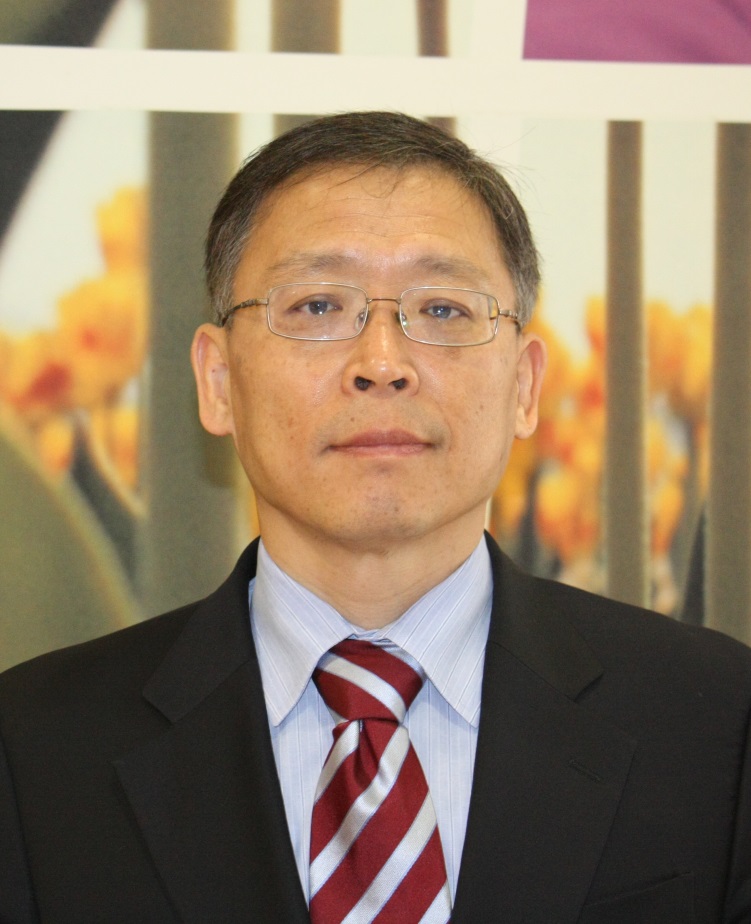After a long career at leading diagnostics companies in research and business development roles, Young Kuk Yun decided to use his accumulated experience to start a venture dedicated to providing access to the technology and know-how required to perform translational biomedical research and develop companion diagnostics tools for biopharmaceutical companies in Korea and APAC.
You have 20 years of experience in the life sciences diagnostics industry. How have your past experiences prepared you to go it alone and start your own diagnostics company?
I started my career after my postdoctoral thesis at Procter & Gamble’s pharmaceutical department as a Synthetic Organist Chemist. It goes without saying that in such a large multinational business, operations are incredibly structured, and people are asked to play a very specific role. The room for initiative, innovative thinking and intuition is quite narrow. As a result, I decided to join Argonaut Technologies, a startup venture based in the San Francisco Bay Area. I was their 22nd employee. In startups, people are given tremendous ownership of their work. Nobody asks you to come at seven in the morning. People come to the office when they have to and work as long as required. Moreover, individuals play multiple roles. In my case, I joined the startup as a research scientist, but soon started taking care of product marketing, and then Asia Pacific sales when the Chinese market was opening. As a result, this experience allowed me to evolve from a purely academic mindset to a business-centric approach.
After Argonaut, I joined another startup, Caliper Life Sciences. Through in-house R&D and strategic acquisitions, Caliper built the technology platforms necessary to perform translational biomedical research. After the company was acquired by PerkinElmer in 2011, I was asked to build APAC operations, including Korea. This is when I was introduced to Samsung Medical Center’s Institute for Refractory Cancer Research. The centre was pioneering precision oncology. At the time, there were only one or two effective drugs for glioblastoma, and metastatic brain tumours were impossible to treat. After surgery, many patients relapse. After cutting a patient’s tumour into specific portions, scientists sequenced it at the Samsung Genome Institute. Then they sliced it to run a pathology assay using PerkinElmer’s digital pathology technology allowing multiplexing immunohistochemistry. They made patient-derived primary cell lines and grew them to form microtissue, which they then hit with multiple FDA approved and orphan drugs, alone and in combination. We also helped Asan Medical Center build its translational biomedical research centre. Their platform technology costs close to USD 20 million and requires at least 30 PhDs to run. Small and medium-size biotech companies simply cannot afford to build such a platform. This is the reason why I decided to start my own company.
What are you trying to achieve with CDX Bio and Bioprism?
The idea of Intuitive CDX Bio, aka CDXBio and Bioprism Ltd. Inc., is to provide biopharmaceutical companies access to these complex technologies to perform translational biomedical research and develop companion diagnostics. CDX Bio is the consulting wing while Bioprism is the operational wing. The core competencies of CDX Bio and Bioprism are immunohistochemistry and ultra-high sensitive ELISA assay. Because of the cost of investment, no one else has a similar platform in Korea. All three platforms provide different immune monitoring. Korean pharmaceutical companies, from the largest ones such as Green Cross to smaller ones like PharmAbcine, do not have access to this technology platform. Moreover, they lack the resources necessary to handle all different types of assays during pre-clinical and clinical development. Our goal with CDX Bio and Bioprism is to tap into this unmet need of biopharmaceutical companies by providing them with a comprehensive service to be able to handle all types of assays.
What are your ambitions in the field of companion diagnostics?
Pharmaceutical companies have been reluctant to develop and utilize companion diagnostics until now. The reason is that the goal of companion diagnostic tools is to categorize patient groups to determine which patients will respond well to a particular drug based on the presence of certain biomarkers. For instance, Roche recently received approval for their pathology companion diagnostic used to identify patients eligible for treatment with the Novartis drug ZYKADIA using an immunohistochemistry platform called VENTANA. From the perspective of pharmaceutical companies, they would prefer if their drug is prescribed to every patient afflicted with a certain type of cancer. However, companion diagnostics, by improving the efficacy of the drug for a subset of patients, improve the likelihood that the drug will be approved and ultimately save people’s lives.
Among approved oncology drugs, only around 16 percent come with their companion diagnostic tool. Consequently, there is a huge untapped market. According to Market Research Engine, the companion diagnostics market is expected to grow at a 20 percent CAGR in the next five years and exceed USD 6.51 billion by 2022.
Once we secure financing, we can move to start building our own R&D capabilities for companion diagnostics in genomic and immuno-profiling and form pharmaceutical partnerships. In order to develop these capabilities, we will collaborate with GeneInUs, a company founded as a spin-off of the Samsung Genome Institute. While GeneInUs as strategic partners will work on the genomic side, we will work on the pathology side.
What are the next steps in the coming years?
By 2020, our goal is to have a full translational biomedical research platform. We are conducting discussions with several US diagnostics companies to become their certified lab services provider in Korea and APAC. Once we have access to their platform technologies, we would be able to provide an incredible level of service. We also signed an MoU with Singapore-based Pacific Lab Services to enter the South East Asian, Indian and Australian markets. They will be responsible for the genomic assays, immune monitoring and immunohistochemistry.







